Therapies
1)OCCUPATIONAL THERAPY: It is the art and science of enabling engagement in everyday living, throught occupation; of enabling people to perform the occupations that foster health and well- being; and of enabling a just and inclusive society so that all people may participate to their potential in the daily occupations of life.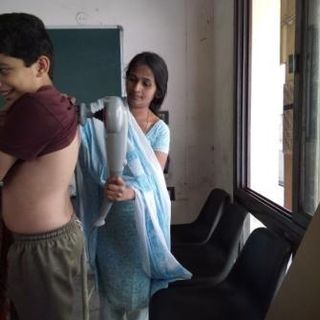
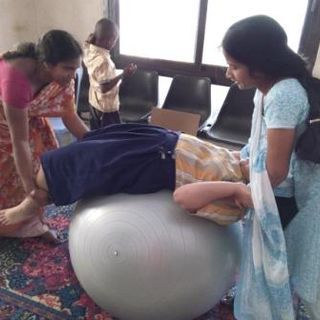
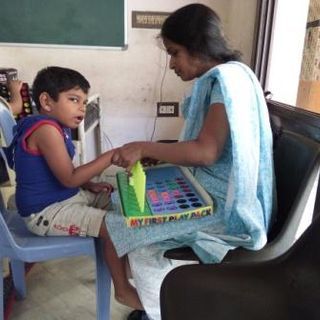
TYPES OF CASES TREATED:
1)AUTISM : This is a condition which usually has its onset at the age of 2 years before which the child might have developed quite normally but gradually lost his or her language abilities, social skills and begins to behave in a slightly different manner, not maintaining eye contact, an obsessive desire for sameness , repetative ,stereotyped, sometimes odd and eccentric behaviour, living in a world of his own playing with and prefering inanimated objects to animate ones, sometimes hyperactive and at times not responding to call of his or her name inspite of hearing abilities being normal.
2)DOWN'S SYNDROM : Down syndrome is a genetic disorder caused when abnormal cell division results in extra genetic material from chromosome 21. This genetic disorder, which varies in severity, causes lifelong intellectual disability and developmental delays, and in some people it causes health problems.
3)DYSLEXIA : Some children perform poorly at academics inspite of normal to high intelligence as evidenced by good scores on I.Q. tests. Such children suffer from Dyslexia or a specific developmental delay for reading, writting and spelling.
4)ADHD : Attention deficit hyperactivity disorder is characterised by poor concentration, hyperactivity and impulsivity.These children are constantly forgetting, restles, unable to sit still and continuosly pulling, pushing or handling objects or pinching and fiddling with other peoples limbs or things.
5)MENTAL RETARDATION : An I.Q. less than 70 and above 50 is called mild mental retardation due to which the child lags behind others in all subjects. An I.Q. lower than 50 suggests the child is more trainable than educable and a special school is the answer. Children should be taught self help, eating, dressing, concepts of money, activities of daily living etc.
2) PHYSIOTHERAPY : Physiotherapy is a branch of rehabilitative health that uses specially designed exercises and equipments to help patients regain or improve their physical abilities.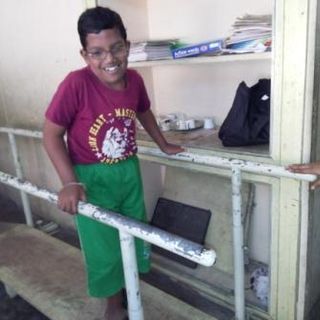
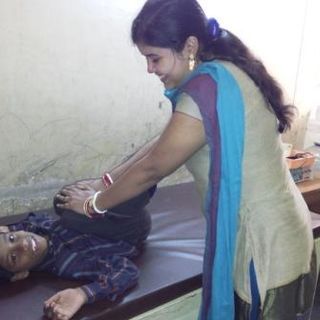
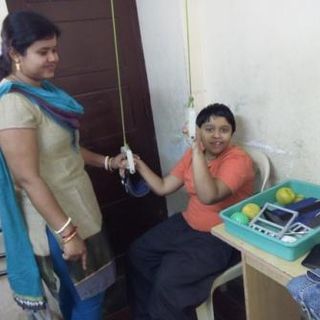
PHYSIOTHERAPIST : Dr. B. Indrani Dey
TYPES OF CASES TREATED :
1) CEREBRAL PALSY : Cerebral palsy or CP is a neuromuscular disorder of cerebral origin which effects the mobility of the child.
2) DOWN'S SYNDROM : All the physical disabilities associated with Down's syndrom.
Any other types of physical and gait disabilities.
3) SPEECH THERAPY : Speech and Language therapy is to assess, treat, speech, language and communication problems in differently abled children.
Speech is a highly developed motor activity.It needs co-ordinated effort of 72 muscles to utter even a single word.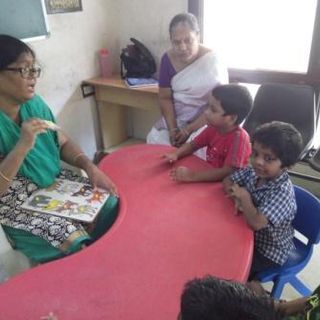
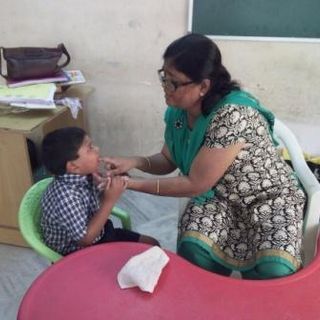
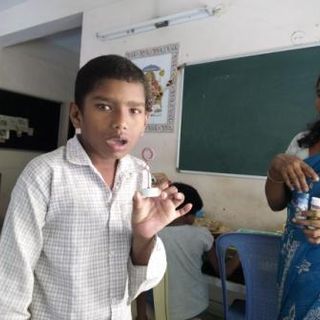
SPEECH THERAPIST : Josheela Shanti
At Vivek we follow :
- airflow management
- oral motor movement
- articulation
- drills to achieve control over voice, breath and rate of utterance.
- activity based teaching language to the differently abled children.
LOCATION
- 9989199273
- chintadasunita@gmail.com
- Address:

